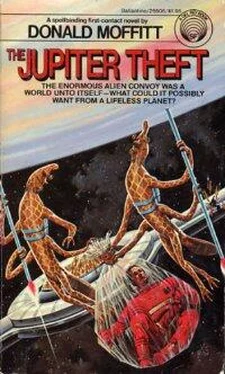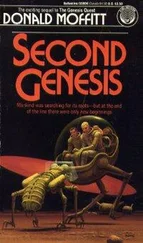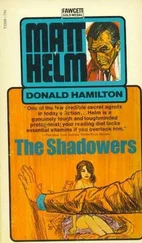Before returning to his cabin to collapse in his bunk, Jameson sought out Maybury in the observatory.
The ship’s engines had been firing steadily for a couple of hours now; Mike and Quent, and the three Chinese fusion techs, were taking turns staying awake to monitor the boron-11 fusion/fission cycle. Maggie had calculated an escape orbit from the death-grip of Jupiter, which was now falling toward the Sun at more than a thousand kilometers a second. Enough maneuvering jets had been unplugged so that Kay had even been able to put some spin on the ring. The ship would live until it got back to Earth.
Provided Earth was still there.
Maybury looked up from a computer console as he entered. Her face looked dreadful: a wan porcelain mask with two great dark holes in it. Her head moved as though her neck had gone stiff.
“Still working?” he said.
“I thought I’d just set up some hypothetical programs to calculate gravitational stresses for Earth using various trajectories for Jupiter.”
“You don’t have to stay awake for that. There’s not a damn thing anybody can do to change things.”
“I know. It’s just something to do.”
He settled down in a seat next to her. With the engines firing, he had almost two pounds of weight.
“I found out where the two humanoids came from.”
She was all attention. “Where?”
“61 Cygni.”
She nodded slowly. “It could be. It’s roughly in the line of flight from Cygnus X-1.”
“And it’s close. ”
“That’s right. Eleven point two light-years away. There are only a dozen stars that are closer to us.”
“If Dr. Ruiz’s theory was correct…” He stopped till the pain disappeared from her face. “Then that must have been the Cygnans’ last stop before they headed for Earth. Our feathery zoo mates were the Cygnans’ most recent acquisition before us.”
“But 61 Cygni was never considered to be a prime candidate for life.”
“It is now.”
“It’s a double star, actually. The two suns are a K5 and a K7. Very weak. About six percent of the luminosity of our own sun. There wouldn’t be much of a biosphere for habitat planets. Are you sure you understood the humanoids correctly?”
“61 Cygni has a third component,” he prompted her.
“But it isn’t a star,” she said. “It’s a nonluminous body. A planet. Actually, one of the first extra-solar planets to be discovered. It’s a superjovian, with a mass about twelve times Jupiter’s. It…” She stopped. “Oh.”
“Exactly.”
She swiveled back to the computer console so quickly that Jameson had to press her shoulder to push her back in her seat. Her hands scrabbled over the keys. Words tumbled out of her as she worked. “Dr. Ruiz transferred big chunks of the Farside computer’s astronomical library to the ship’s memory before we left Earth. He wanted to be sure we had updated data. The third component of 61 Cygni was discovered over a hundred years ago when they noticed some irregularities in the proper motion of the binary. They started to discover a lot of extrasolar superjovians that way about then—most of them among the closer stars, of course. But nobody keeps tabs on them much any more. They get surveyed every few years in the automated sky sweeps, and if anybody wants to pull data out of the record for a graduate paper or anything, they can. Here we are. A check was made on it about five years ago, and then another just about a month before we launched this mission.”
They both stared avidly at the data coming up on the screen. Jameson was unable to interpret the tables of astronomical figures. “What’s it mean?” he said.
“Five years ago 61 Cygni had its usual wobble. Now it doesn’t.”
“The superjovian’s gone, then.”
Maybury was going over the figures. “The Cygnans would have taken it a little more than eleven years ago. Its light ran ahead of them—but not by much of a margin. We would have seen the wobble until just before the Cygnans arrived—if we’d known enough to look for it.”
Jameson looked out the viewport. The cast-off moons of Jupiter were now the brightest objects in the sky. They were tumbled carelessly across the night, like scattered dice, still rather close together. He picked out the biggest of them, a smooth white ball, the apparent size of a golfball, that had captured its own marble-sized moon.
“That’s its core,” he said. “All that’s left of a planet twelve times the mass of Jupiter. It belongs to the feathery folk. Too bad there’s no way to get it back to them.”
Maybury had found something in the figures that interested her. She was making side calculations on a lightpad.
“They were astronauts,” Jameson went on. “They made me understand that with pantomime. They were out quite a distance from their world, exploring asteroids, when the Cygnans scooped them up. They’ve got space flight, the same as we do. But their race doesn’t have star travel yet. They were as excited by the Cygnan broomstick as Mike was. They want to go home.” He paused. “But they don’t have a home to go back to, do they?”
She made a brave effort to smile. “Is that what you came here to ask me?”
“Yes.”
“The third component of 61 Cygni couldn’t have been their home, you know. It’s an unkindled star. Nothing could have lived there except creatures like the Jovians.”
“I know that. But I thought their home planet might have been a satellite of the superjovian—same as the Cygnans’ was. It was big enough to have planets. Big enough, even, to have an Earth-size planet.”
“No,” she said flatly. “That would put their planet too far away from either primary to be warmed by them. It’s not at all the same situation as Cygnus X-1 and its supergiant companion. Those were two hot stars with a joint ecosphere, so close together that they circled one another in only four and a half days.”
“And 61 Cygni is a different story?”
She almost laughed. “Commander, the two stars of 61 Cygni have a period of seven hundred and twenty days! They’re far apart! They’re too far apart to have a joint ecosphere. And they’re both so dim that no matter which one of them the humanoids’ home world orbited, it would have to be very, very close to its star. When the Cygnans made off with the superjovian component of the system, it couldn’t possibly have dragged the humanoids’ planet along with it.”
“So their world is still there?” he said.
“Yes,” she said. “It’s still there.”
“Thanks,” he said. He squeezed her shoulder and got up to go.
She stopped him at the door. “Commander Jameson…”
He turned. “Yes?”
“Dr. Ruiz … I mean … what do you think will happen to his body? They won’t just … just throw it away, will they?”
“No,” Jameson lied. “They’ll probably allow the humans to bury it in their compound. It’s a closed ecology. Relatively closed, anyway.”
“That’s good, then,” she said slowly. “He’ll be a part of them forever now, won’t he?”
“Not just them,” he said, and left.
Sue Jarowski looked round the wreckage of Jameson’s cabin, appalled. The Cygnans had torn out everything movable, including the mattress on the bunk, and messed up what was left.
“I suppose we can make it livable,” she said doubtfully. “I’ll bring my own mattress and some cushions from the lounge.” She stared sadly at the empty shelves. “They even took your omnisound and music cards.”
“We can live without music,” Jameson said. “I was getting tired of that damned collection anyway.”
She gave him a probing look. After a moment she said, “Tod, don’t feel bad about Maggie. She isn’t worth it. She tried to get me to send a coded laser message back to Earth today. I refused. I think she was going to report Mike for sharing the Cygnan broomstick with the Chinese.”
Читать дальше












